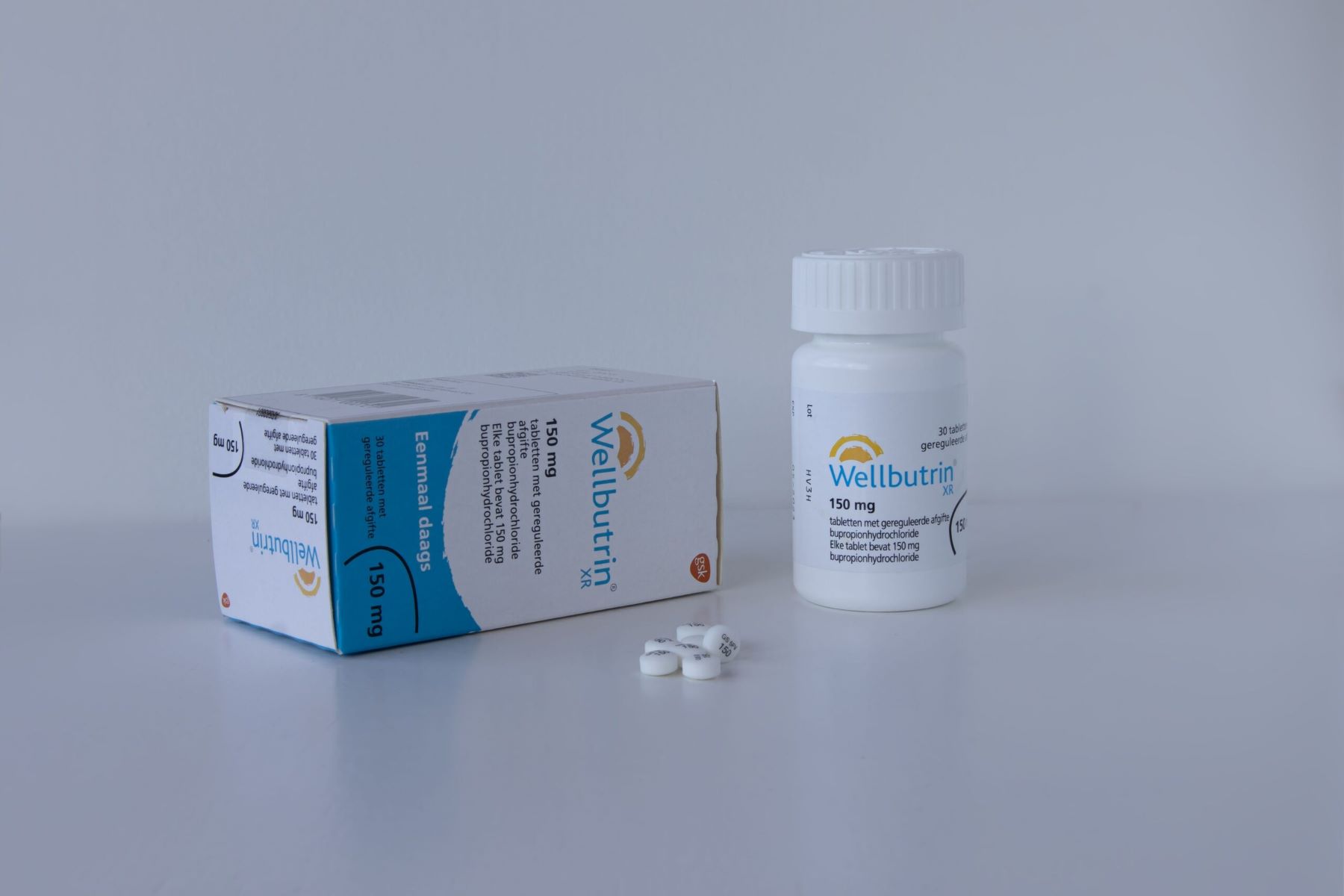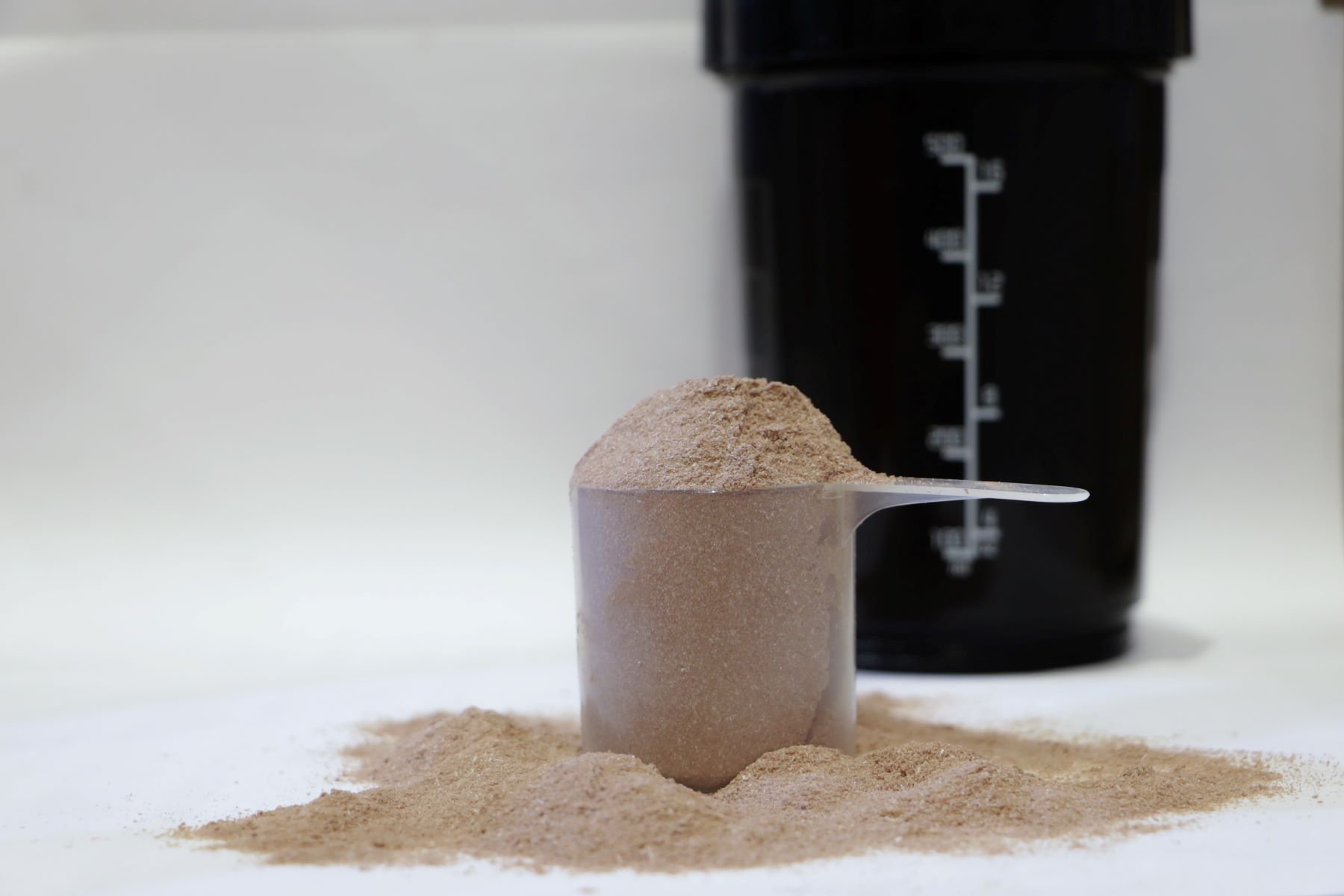Home>Health and Wellness>The Surprising Benefits Of Consuming Creatine Without Working Out


Health and Wellness
The Surprising Benefits Of Consuming Creatine Without Working Out
Published: February 12, 2024
Discover the unexpected advantages of consuming creatine for your health and wellness, even without hitting the gym. Uncover the potential benefits of adding creatine to your daily routine.
(Many of the links in this article redirect to a specific reviewed product. Your purchase of these products through affiliate links helps to generate commission for Regretless.com, at no extra cost. Learn more)
Table of Contents
Introduction
Creatine has long been a staple in the fitness world, renowned for its ability to enhance athletic performance and muscle growth. However, what many people may not realize is that the benefits of creatine extend beyond the realm of exercise and weightlifting. In fact, consuming creatine without working out can still offer a range of surprising advantages for overall health and wellness.
While the traditional association of creatine with physical training is well-founded, the compound's lesser-known benefits are gaining recognition in broader health and wellness circles. From cognitive enhancement to potential therapeutic applications, the diverse advantages of creatine consumption without exercise are increasingly coming to light. This article will delve into the unexpected benefits of incorporating creatine into one's daily routine, even in the absence of regular workouts.
As we explore the multifaceted virtues of creatine consumption without exercise, it becomes evident that this compound holds promise beyond its conventional role in fitness. By understanding the lesser-known benefits and practical considerations associated with creatine supplementation, individuals can make informed decisions about integrating this compound into their wellness regimens. Let's delve into the intriguing realm of creatine and uncover the compelling reasons to consider its consumption, irrespective of one's exercise habits.
What is Creatine?
Creatine is a naturally occurring compound that plays a pivotal role in energy metabolism within the body. It is primarily stored in the muscles and is synthesized from amino acids, namely glycine, arginine, and methionine. This organic acid is a cornerstone of the adenosine triphosphate (ATP) energy system, which fuels various cellular processes, including muscle contractions and protein synthesis.
In its supplemental form, creatine is widely recognized for its capacity to bolster physical performance, making it a popular choice among athletes and fitness enthusiasts. When consumed, creatine is converted into phosphocreatine, a crucial energy source for high-intensity activities such as weightlifting and sprinting. By replenishing ATP stores, creatine aids in sustaining muscle power output and delaying fatigue during intense workouts.
Beyond its role in exercise performance, creatine has garnered attention for its potential cognitive benefits. Research suggests that creatine supplementation may enhance brain function and mitigate neurological disorders. It is believed to exert neuroprotective effects, potentially benefiting individuals with conditions such as Parkinson's disease and traumatic brain injury.
Moreover, creatine's influence extends to cellular hydration, as it facilitates water retention within muscle cells, contributing to their volumization. This effect is thought to promote muscle growth and overall strength, complementing its performance-enhancing attributes.
In essence, creatine serves as a versatile compound with diverse physiological implications. Its ability to augment energy reserves, support cognitive function, and modulate cellular hydration underscores its significance beyond the confines of exercise. As such, understanding the multifaceted roles of creatine is instrumental in appreciating its broader impact on health and wellness.
Benefits of Consuming Creatine Without Working Out
-
Cognitive Enhancement: Research has unveiled the potential cognitive benefits of creatine consumption independent of exercise. The compound's role in supporting brain function and mental acuity has garnered significant interest. Studies have indicated that creatine supplementation may enhance working memory, reasoning skills, and overall cognitive performance. This cognitive boost holds promise for individuals seeking to sharpen their mental faculties, irrespective of their physical activity levels.
-
Neuroprotective Properties: Creatine's neuroprotective attributes have emerged as a focal point in neurological research. It is believed to confer protective effects against neurological diseases and injuries. The compound's ability to bolster cellular energy reserves and mitigate oxidative stress underscores its potential in combating neurodegenerative conditions. By shielding neurons from damage and bolstering brain energy metabolism, creatine exhibits therapeutic potential in neurological disorders, offering a compelling rationale for its consumption outside the realm of exercise.
-
Muscle Preservation: While creatine is widely recognized for its role in muscle growth and strength enhancement, its capacity to preserve lean muscle mass without exercise is noteworthy. This attribute is particularly relevant for individuals undergoing periods of reduced physical activity or immobilization due to injury or illness. By aiding in the retention of muscle mass, creatine may mitigate the deleterious effects of inactivity, supporting overall physical function and metabolic health.
-
Metabolic Support: Creatine's influence on metabolism extends beyond exercise performance, encompassing broader metabolic implications. Studies suggest that creatine supplementation may enhance glucose tolerance and insulin sensitivity, potentially conferring metabolic benefits. These effects are pertinent in the context of metabolic health and may hold relevance for individuals aiming to optimize their metabolic function, irrespective of their exercise engagement.
-
Therapeutic Potential: Beyond its conventional role in fitness, creatine's therapeutic potential is increasingly being explored. The compound's ability to modulate cellular energy dynamics and exert protective effects has sparked interest in its application for various health conditions. From mitochondrial disorders to neurodegenerative diseases, creatine's therapeutic versatility underscores its relevance as a potential adjunctive therapy, transcending its association with physical training.
In essence, the benefits of consuming creatine without working out encompass cognitive enhancement, neuroprotection, muscle preservation, metabolic support, and therapeutic potential. These diverse advantages underscore the compound's far-reaching impact on health and wellness, positioning it as a multifaceted ally in promoting overall well-being, irrespective of exercise habits.
How to Consume Creatine Without Working Out
When considering the consumption of creatine without engaging in regular exercise, it is essential to approach its utilization with a strategic and informed mindset. While creatine is commonly associated with physical training, its potential benefits for non-athletic individuals warrant thoughtful consideration. Here's a comprehensive guide on how to incorporate creatine into one's routine without the emphasis on exercise:
Selecting the Right Form and Dosage
Choosing the appropriate form of creatine is a crucial initial step. Creatine monohydrate, the most researched and cost-effective variant, is a popular choice for non-athletic individuals. It is typically available in powder form and can be easily mixed with water or a preferred beverage. Additionally, creatine hydrochloride and buffered creatine offer alternative options, each with distinct solubility and absorption characteristics.
In terms of dosage, a conservative approach is advisable for individuals not engaging in regular exercise. A daily intake of 3-5 grams of creatine monohydrate is generally considered sufficient to confer potential cognitive and neuroprotective benefits. This modest dosage aligns with the aim of harnessing creatine's diverse advantages beyond the realm of physical performance.
Timing and Consistency
Consistency in creatine consumption is paramount for maximizing its potential benefits. Establishing a routine for daily creatine intake, irrespective of exercise patterns, can facilitate the compound's gradual accumulation in muscle tissue, supporting its physiological effects.
While the timing of creatine consumption is less critical for non-athletic individuals, incorporating it into a daily regimen, such as with breakfast or another regular meal, can help ensure consistent intake. This approach fosters adherence to the supplementation protocol and promotes the sustained presence of creatine in the body.
Hydration and Dietary Considerations
Optimal hydration is fundamental for creatine uptake and efficacy. Adequate fluid intake supports creatine's cellular uptake and retention, contributing to its potential benefits for cognitive function and overall well-being. Therefore, maintaining a well-hydrated state complements the consumption of creatine, irrespective of exercise engagement.
Furthermore, pairing creatine consumption with a balanced diet rich in protein and carbohydrates can support its assimilation and utilization. By integrating creatine into meals containing sources of protein and carbohydrates, individuals can potentially optimize its absorption and metabolic effects, amplifying its impact beyond exercise-related outcomes.
Monitoring and Individual Considerations
Regular monitoring of one's response to creatine supplementation is advisable, especially in the absence of exercise. Observing any subjective changes in cognitive function, mental clarity, or overall well-being can provide valuable insights into the individual's response to creatine consumption.
Moreover, individuals with specific health considerations or those taking medications should consult healthcare professionals before initiating creatine supplementation. This proactive approach ensures that potential interactions or contraindications are duly considered, aligning with personalized health management.
By adhering to these guidelines and embracing a purposeful approach to creatine consumption, individuals can harness its potential benefits without the primary emphasis on exercise. This strategic utilization underscores the versatility of creatine as a multifaceted ally in promoting cognitive function, neuroprotection, and overall wellness, transcending its conventional association with physical training.
Risks and Side Effects of Creatine Consumption Without Working Out
While creatine supplementation offers a spectrum of potential benefits, it is imperative to acknowledge the associated risks and side effects, particularly when consumed without a concurrent exercise regimen. Understanding the potential drawbacks of creatine consumption in the absence of regular physical activity is crucial for informed decision-making and risk mitigation. Here's an exploration of the potential risks and side effects to be mindful of:
Fluid Imbalance
One notable concern related to creatine consumption, especially in the absence of exercise, pertains to the potential for fluid imbalance. Creatine supplementation has been associated with intracellular water retention, which can lead to increased body water content. In the absence of exercise-induced fluid loss, this heightened water retention may pose challenges, potentially manifesting as bloating or discomfort. Individuals should be mindful of their hydration status and adjust their fluid intake accordingly to maintain a balanced internal environment.
Gastrointestinal Distress
For some individuals, creatine supplementation, particularly in higher doses, may lead to gastrointestinal discomfort. Symptoms such as nausea, diarrhea, or stomach cramps have been reported in a subset of users. In the absence of exercise-related metabolic demands, the gastrointestinal system may respond differently to the introduction of creatine, necessitating vigilance in monitoring and adjusting the dosage to minimize potential discomfort.
Renal Strain
While extensive research has not conclusively established a direct link between creatine supplementation and renal impairment in healthy individuals, the potential for renal strain remains a subject of consideration. In the absence of exercise-related renal blood flow modulation, the impact of creatine on renal function warrants attention, especially in individuals with preexisting renal conditions. Monitoring renal function and consulting healthcare professionals when initiating creatine supplementation is advisable, particularly for those with renal health concerns.
Weight Gain
Given creatine's capacity to promote cellular hydration and muscle volumization, weight gain may occur, primarily attributed to increased water retention within muscle cells. While exercise-related muscle growth typically aligns with favorable body composition changes, the absence of exercise-induced muscle adaptation may influence the interpretation of weight gain. Individuals should be mindful of potential changes in body weight and composition, recognizing the distinct implications of creatine-induced weight fluctuations in the absence of exercise stimuli.
Individual Variability
It is essential to recognize that individual responses to creatine supplementation can vary significantly. Factors such as genetic predisposition, baseline health status, and metabolic idiosyncrasies can influence how the body processes and responds to creatine, irrespective of exercise engagement. This variability underscores the importance of personalized assessment and monitoring to discern individual tolerability and optimize the risk-benefit profile.
In essence, while creatine consumption without working out may offer diverse benefits, it is vital to remain cognizant of the potential risks and side effects associated with this approach. By acknowledging and addressing these considerations, individuals can make informed choices regarding creatine supplementation, aligning with their health objectives and risk tolerance. Proactive monitoring, personalized adjustment, and consultation with healthcare professionals are integral components of a prudent approach to creatine consumption in the absence of regular exercise.
Conclusion
In conclusion, the conventional association of creatine with exercise performance represents only a fraction of its multifaceted potential. The exploration of consuming creatine without working out has unveiled a compelling array of benefits that extend far beyond the realm of physical training. From cognitive enhancement and neuroprotection to metabolic support and therapeutic versatility, the diverse advantages of creatine consumption without exercise underscore its relevance as a versatile ally in promoting overall health and wellness.
The cognitive benefits of creatine supplementation, encompassing enhancements in working memory, reasoning skills, and overall cognitive performance, hold promise for individuals seeking to optimize their mental faculties, irrespective of their exercise habits. Moreover, creatine's neuroprotective properties have emerged as a focal point in neurological research, offering potential therapeutic implications for conditions such as Parkinson's disease and traumatic brain injury.
The capacity of creatine to preserve lean muscle mass without exercise is particularly significant for individuals undergoing periods of reduced physical activity due to injury or illness. This attribute underscores the potential of creatine to mitigate the deleterious effects of inactivity, supporting overall physical function and metabolic health.
Furthermore, creatine's influence on metabolism, encompassing enhancements in glucose tolerance and insulin sensitivity, holds relevance for individuals aiming to optimize their metabolic function, irrespective of their exercise engagement. The compound's therapeutic potential in various health conditions, from mitochondrial disorders to neurodegenerative diseases, further underscores its far-reaching impact beyond its conventional role in fitness.
By embracing a strategic approach to creatine consumption, individuals can harness its potential benefits without the primary emphasis on exercise. Thoughtful consideration of the form, dosage, timing, and hydration aspects of creatine supplementation, coupled with personalized monitoring and consultation with healthcare professionals, forms the cornerstone of a prudent approach to integrating creatine into one's wellness regimen.
While acknowledging the potential risks and side effects associated with creatine consumption without regular exercise, individuals can navigate these considerations through informed decision-making and proactive risk mitigation. By recognizing the individual variability in response to creatine and addressing potential challenges such as fluid imbalance, gastrointestinal distress, and renal strain, individuals can optimize the risk-benefit profile of creatine supplementation.
In essence, the exploration of consuming creatine without working out illuminates the compound's diverse virtues as a multifaceted ally in promoting cognitive function, neuroprotection, muscle preservation, metabolic support, and therapeutic potential. This nuanced understanding positions creatine as a versatile and impactful component of holistic health and wellness, transcending its conventional association with physical training.












